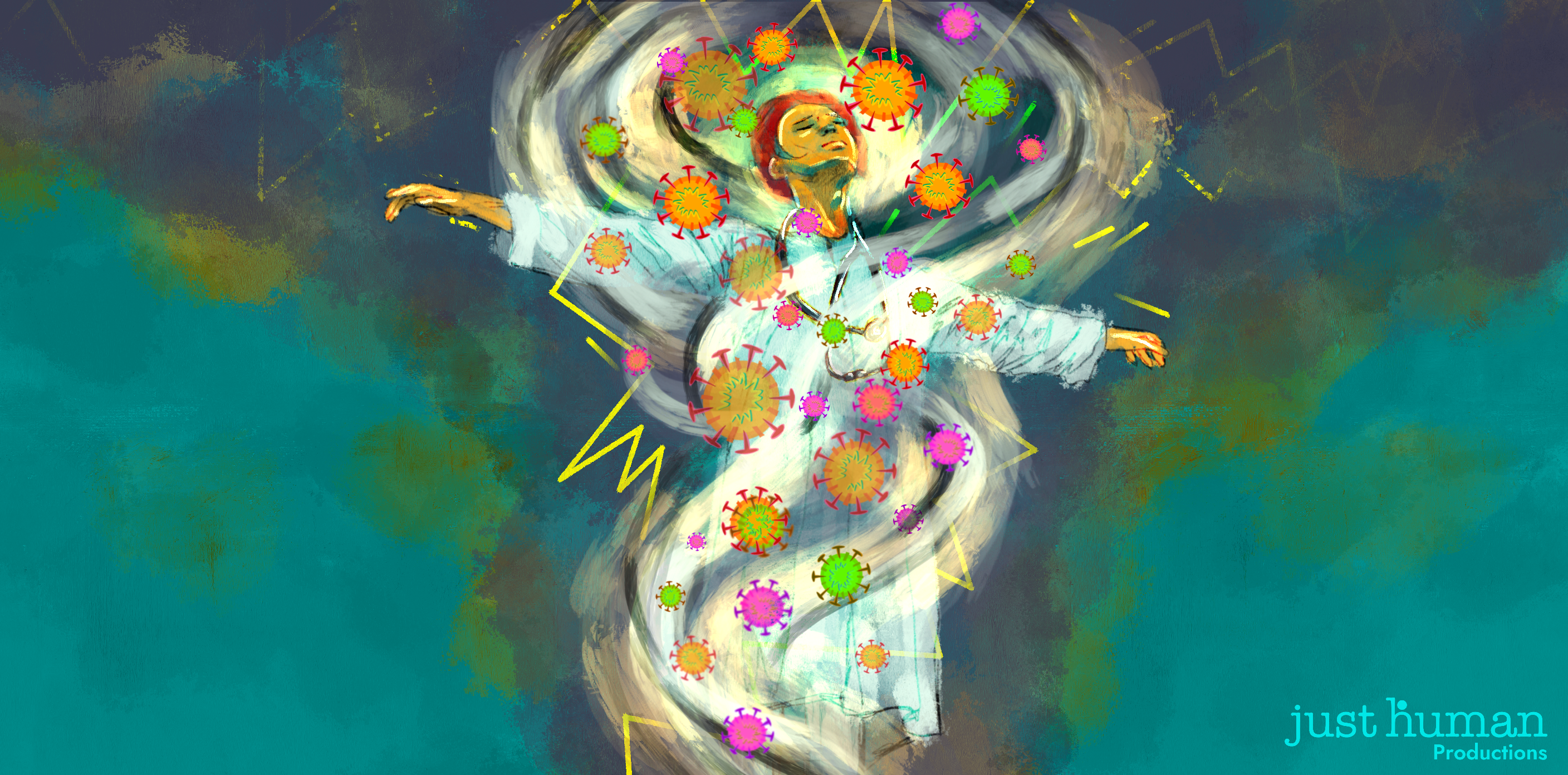“Now my work and now my life’s mission is to figure out how can we find other drugs, like sirolimus, that are already FDA approved that can create seven-plus year remissions for other people with diseases that don’t have answers, whether it’s COVID or many, many other conditions.” – Dr. David Fajgenbaum
When the human body is infected with a pathogen, it mounts an immune response to fight it off and bring the body back to a state of good health. Part of this response involves cytokines–naturally produced chemicals that function like a telephone switchboard between cells, informing the immune system to begin fighting off the infection. On rare occasions, too many cytokines are activated and the circuits get overwhelmed. Cell pathways become suddenly overrun with cytokines, which causes them, and the body, to become dangerously inflamed. This burst of rapid inflammation is called a cytokine storm. But why are cytokine storms relevant here? Because cytokine storms are at the root of severe cases of COVID-19, and could be a key to a cure. In Episode 63 of EPIDEMIC, Chasing the Cure, Dr. Céline Gounder meets with Dr. David Fajgenbaum, an American immunologist and Assistant Professor at the Perelman School of Medicine, to discuss the importance of cytokines and drug repurposing to find a cure for COVID-19.
In his third year of medical school at the University of Pennsylvania, Fajgenbaum was diagnosed with idiopathic multicentric Castleman disease. Castleman disease is very rare and deadly. Fajgenbaum struggled immensely in the first three years of his diagnosis, and nearly lost his life. However, he never gave up hope. In turn, his experience with the disease motivated him to start researching potential treatments.
Castleman disease affects both your body’s lymph nodes and immune system, setting your immune system into overdrive and causing a cytokine storm. This “storm” can shut down vital organs, such as the liver and kidneys. This final pathway of cytokine storms as the cause of deadly diseases like Castleman’s and COVID-19 could provide a target at which treatments could be aimed.
Doctors often treat new or rare diseases with existing drugs, which is called “off-label use” or “repurposing.” As Fajgenbaum was quickly running out of treatment options on his fifth relapse of Castleman’s, he decided to try a drug named sirolimus, which is typically used to prevent the rejection of transplanted kidneys. Despite the fact that the drug had not been approved by the FDA to treat Castleman disease, Fajenbaum decided to test it out. He is now in his seventh year of remission.
Fajgenbaum believes that repurposing drugs is essential to finding effective treatments for COVID-19. Fajgenbaum mentioned, “just because the drug is developed for one disease doesn’t mean that it only works for that one disease.” In March 2020, Fajgenbaum initiated the CORONA project, which created a database of the drugs that could be used to treat COVID-19 patients. He hoped to use this database to start randomized control trials (RCTs) to find the best drugs to treat COVID-19 patients. However, researchers quickly ran into obstacles, struggling with a lack of valid data and ethical concerns. Still, Fajgenbaum is optimistic: “If we could create a silver lining out of this awful experience,” he says, “where we could use the learnings of drug repurposing, quickly tracking what works, what doesn’t work, deciding what drugs should move on to trials, what drugs shouldn’t move on to trials.”
Listen to EPIDEMIC Episode 63: Chasing the Cure, to learn more about Fajgenbaum’s experience with Castleman disease and how that inspired him to join the race for a COVID-19 treatment.
